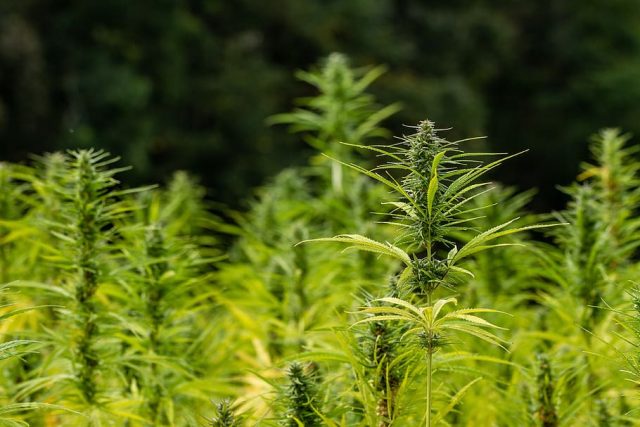
Columbus, OH — November 12, 2024 — Ohio is one of 21 states where intoxicating hemp products, such as delta-8 THC gummies, are legal but remain largely unregulated, raising growing concerns about public health, consumer safety, and youth access. A new report from Ohio State University’s Drug Enforcement Policy Center (DEPC) outlines these concerns and proposes several regulatory measures to address the issue.
The report, which was released on November 12, highlights the increasing prevalence of these hemp-derived products and the potential risks they pose, from the safety and quality of products sold in stores to the dangers of accidental exposure among children. The DEPC report comes as the Ohio General Assembly debates several bills aimed at regulating or banning intoxicating hemp products, which are becoming more commonly available in retail outlets across the state.
“Many states have taken steps to regulate intoxicating hemp products,” said Jana Hrdinová, the report’s author and DEPC administrative director. “Ohio, however, remains among a minority of states with minimal or no regulations, despite growing concerns from policymakers and public health experts.”
The 2018 Farm Bill legalized hemp at the federal level, allowing products containing less than 0.3% delta-9 THC to be sold legally across the U.S. This law, however, left the door open for a rise in new hemp-derived cannabinoids, such as delta-8 THC and delta-10 THC, which can produce psychoactive effects similar to traditional marijuana. In Ohio, these products have flooded the market, often without the same regulations that govern marijuana in other states.
Regulatory Efforts in Ohio
The report notes that several bills are currently being discussed in Ohio’s legislature. Senator Steve Huffman (R-Tipp City) introduced Senate Bill 326 on November 6, which aims to define intoxicating hemp products and criminalize their sale. The bill is one of several initiatives to tackle the issue, but the DEPC report notes that many of these proposed laws lack key provisions seen in regulated marijuana markets in other states.
For example, bills like House Bill 86 (passed by the Senate in December 2023) seek to close loopholes by redefining hemp to prevent the sale of products containing high levels of THC. However, the bills under consideration so far do not address critical regulatory aspects such as child-resistant packaging, product testing, excise taxes, or advertising restrictions for minors.
“In contrast to adult-use marijuana, which is restricted to licensed dispensaries and regulated by strict state laws, intoxicating hemp products can be purchased at virtually any retail store,” Hrdinová said. “There are no age restrictions, no mandates for childproof packaging, and no limits on marketing these products to children.”
Public Health Concerns
The rise in intoxicating hemp products has prompted alarm from health experts. A key issue raised in the report is the impact these products may have on youth. According to a 2023 survey from the National Institute on Drug Abuse, high school seniors are more likely to use delta-8 THC in states without cannabis legalization or existing regulations on hemp products.
“The unfettered access to these products is concerning, particularly because psychoactive THC compounds, whether delta-8 or delta-9, can negatively affect brain development in adolescents,” Hrdinová wrote. Ohio Governor Mike DeWine has also voiced concerns about the proliferation of these products, emphasizing the need for legislative action to address the issue.
Regulatory Gaps and Recommendations
The DEPC report compares Ohio’s unregulated hemp market with the more structured regulations applied to adult-use cannabis. While the adult-use marijuana market is tightly regulated, with high licensing fees, taxes, and rules governing packaging, testing, and advertising, intoxicating hemp products have largely escaped such oversight. This disparity creates an uneven playing field, as hemp-derived products are not subject to the same scrutiny as marijuana, even though they are sold in similar retail environments.
To address these gaps, the DEPC report offers several regulatory recommendations, including:
- Age restrictions: Adopting a 21-year-old minimum age requirement for purchasing intoxicating hemp products, similar to regulations for marijuana.
- Packaging and labeling: Requiring child-resistant packaging and clear labeling, including potency information, to protect consumers and prevent accidental ingestion.
- Advertising restrictions: Implementing regulations to prevent marketing that targets minors, which is a concern given the appeal of some hemp products to younger demographics.
- Consumer safety standards: Establishing manufacturing and product safety standards, including lab testing for potency and contaminants, to ensure that hemp products are safe for consumers.
- Retail oversight: Applying regulations to hemp product retailers, similar to those governing adult-use marijuana dispensaries, including location restrictions near schools, parks, and playgrounds.
The Path Forward
As Ohio lawmakers continue to debate how best to regulate intoxicating hemp products, the DEPC report stresses the importance of balancing the interests of both the hemp and adult-use marijuana industries. In states that have implemented regulations, there is evidence that carefully crafted laws can reduce risks associated with youth use, improve product safety, and protect public health.
However, the report also warns that without stronger oversight, Ohio risks becoming a haven for unregulated products that pose serious risks to consumers and public safety.
“The choices Ohio makes in the coming months will play a critical role in shaping the future of hemp regulation in the state,” Hrdinová said. “The goal should be to protect Ohio’s youth, ensure consumer safety, and create a level playing field for both the hemp and marijuana industries.”
The debate on regulating intoxicating hemp products in Ohio is expected to intensify as the legislative session progresses, with several bills still pending in the General Assembly.











